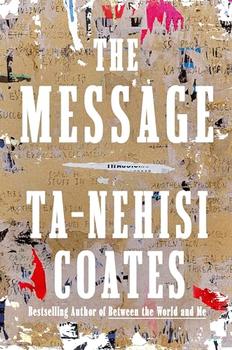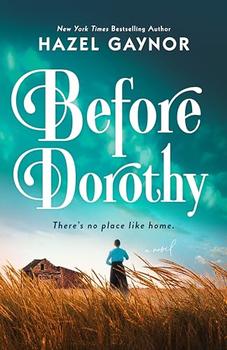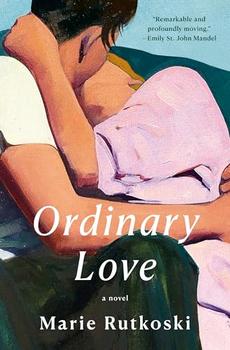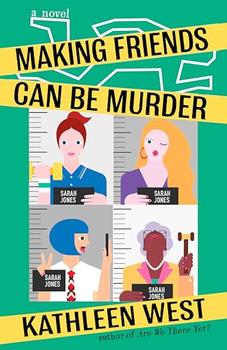Summary | Excerpt | Reviews | Beyond the Book | Readalikes | Genres & Themes | Author Bio

1
Though we do not wholly believe it yet, the interior life is a real life, and the intangible dreams of people have a tangible effect on the world. —James Baldwin
Comrades, in the summer of 2022, I returned to Howard University to teach writing. Given my rather middling career as a university student, I couldn't help but feel somewhat sheepish about the honor. But it was an honor, because it was there that I met you. Our first class was in the woods—out in rural Virginia, where, with my friend the poet Eve Ewing, we spent two weeks reading, writing, and workshopping. I've been teaching writing in some form or capacity for almost as long as I've been a writer, and the only work I love more is writing itself. But with you I found the former rivaling the latter. I don't mean to slight any other cohort of students I've taught in other times and places—all were talented and hardworking. But the fact is, we were drawn together by something more profound.
I guess it begins with our institution, and the fact that it was founded to combat the long shadow of slavery—a shadow that we understood had not yet retreated. This meant that we could never practice writing solely for the craft itself, but must necessarily believe our practice to be in service of that larger emancipatory mandate. This was often alluded to, if not directly stated. All of our work dealt with the kind of small particulars of being human that literature generally deals with. But when you live as we have, among a people whose humanity is ever in doubt, even the small and particular—especially the small and particular—becomes political. For you there be no real distance between writing and politics. And when I saw that in you, I saw myself.
A love of language, of course, is the root of this self. When I was barely six months old, I would crawl over to my father's speakers when he played the Last Poets. And when the record ended, I would cry until he played it again. At five I would lay on my bed, with the Poems and Rhymes volume of the Childcraft series splayed open to "The Duel," and all day I could not help but to murmur to myself, "The gingham dog and the calico cat / Side by side on the table sat." I did this for no other reason than the way the words felt in my mouth and fell on my ears. Later I discovered that there were MCs—human beings seemingly born and reared for the sole purpose of matching the music of language to an MPC snare or 808 kick—and the ensuing alchemy felt as natural to me as a heartbeat:
I haunt if you want, the style I possess
I bless the child, the earth, the gods and bomb the rest
Haunt. You've heard me say this word a lot. It is never enough for the reader of your words to be convinced. The goal is to haunt—to have them think about your words before bed, see them manifest in their dreams, tell their partner about them the next morning, to have them grab random people on the street, shake them and say, "Have you read this yet?" That was what I felt whenever I heard Rakim spit, or for that matter the Last Poets. That was the thing that had me murmuring lines from Childcraft. This affliction was enchantment and desire. It was pleasure but also a deep need to understand the mechanics of that pleasure, the math and color behind words, and all the emotions they evoked. I imagine there are children who see a painting and cannot get the image out of their minds. I imagine they turn it over alone at night in the dark, haunted, considering and reconsidering, and a small secret ecstasy grows in them each time they do this, and, just behind this, a need to convey an ecstasy all their own. I was like that from the moment I could inscribe words into memory. And this instinct naturally linked to the world around me, because I lived in a house overflowing with language organized into books, most of them concerned with "the community," as my mother would put it. And so it was made clear to me that words could haunt not only in form, not only in their rhythm and roundness, but in their content.
Excerpted from The Message by Ta-Nehisi Coates. Copyright © 2024 by Ta-Nehisi Coates. Excerpted by permission of One World. All rights reserved. No part of this excerpt may be reproduced or reprinted without permission in writing from the publisher.




Ordinary Love
by Marie Rutkoski
A riveting story of class, ambition, and bisexuality—one woman risks everything for a second chance at first love.

Making Friends Can Be Murder
by Kathleen West
Thirty-year-old Sarah Jones is drawn into a neighborhood murder mystery after befriending a deceptive con artist.
Only when we are no longer afraid do we begin to live
Click Here to find out who said this, as well as discovering other famous literary quotes!
Your guide toexceptional books
BookBrowse seeks out and recommends the best in contemporary fiction and nonfiction—books that not only engage and entertain but also deepen our understanding of ourselves and the world around us.